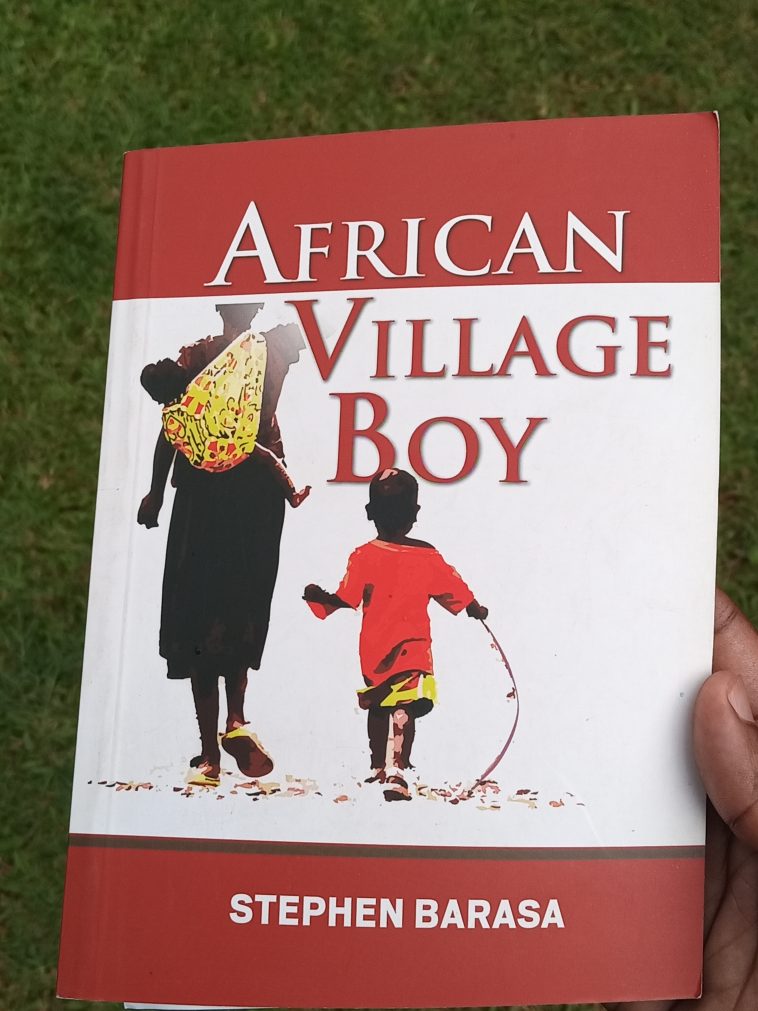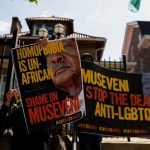In the narration of Barasa, the author of African Village Boy, there is strength in motherhood – that determination to sail into a farrago of circumstances but remain steadfast to nurture and raise children singlehandedly. This is a testimonial that perhaps God is a woman. This I mean, after listening to Shaggy’s song called Strength of a Woman. I have been able to understand better this short narration of uneven events of humor, upbringing, morals, survival and the role of education into the life of a child. I would simply compare this book to a sitcom movie – the author navigates episodes of his life without chronology but with a reflection of life, failures, triumphs, strength and above all reward to life. What is life without a mother? We all want to understand mother’s love, to have that love, to experience that mother’s kindness, and to make it out there with our mother by our sides. Sometimes, it happens. Mothers begin to wear that chemise of a smile we hardly saw on their faces, they begin opening up. We became friends – no longer children. We become brothers or sisters. On the other side of the coin, we plan as the universe also plans. Sometimes their journeys are short-lived. This book by Barasa is a triumph to motherhood – the book describes the matriarchy at her finest. Where a mother becomes the father to protect her cubs from the snares of life. To provide and tend to their lives. This is a right way to appreciate and celebrate feminism. This book’s dedication to Nalongo(sic) as Barasa calls her is a triumph and a feat to all single mothers out there trying to survive with their cubs.
Where should I begin from? The address of the tribal sentiments Barasa begins with – the climate witnessed in Kangulumira. A place filled with many tribes and different sorts of mannerism. He narrates how they were caught roasting their small bird, and became the topic of the village. That aside, Barasa hits on the tribal fraction in between, as they were children but unfortunately a few individuals segregated them because of their lineage and tribe. However, Nnaalongo asserts to them that they should be grateful for the welcome the Baganda have accorded to them, and the hospitality – which is better than nothing. The author reflectively understands the circumstances of that situation but learns to bond in and enjoy the life of the Baganda. Furthermore, in his narration he describes the importance of culture and the need to preserve it at all cost. This is witnessed by the gisu-imbalu that occasionally happens annually and is celebrated by all. Barasa tries to share an understanding of the meaning of cultural shock through his experiences in Buganda. Throughout his book of reflection, he accords the discipline or theme of Culture.
As the author reflects upon his life, he hints more about loss. What hits hardest is the loss – a death in a family that shuts you out but you need to continue moving. This we again witness by how the mother – his mema gathers herself, sobs a little and focuses on the present – the left children. However, like the saying goes every cloud has a silver lining; during this period of grieving, Barasa manages to enter Kampala for the first time and enjoys the sights and sounds of an urban life. Reflectively, Barasa’s book is a reflection of life in the village Vs the life in town. The struggles and the cost of living that hardly spare even the young – the lost manners and compassion, the ugly incidents of theft and cheating in business. How best to cope up with life in Kampala, if not by the hand of mercy and God as a protection wall. In the many chapters of reflection, Barasa confesses his many trials and tribulations. The pains of a wandering child seeking for a breakthrough in life. The sacrifices of those who love dearly – his sister Margaret. Margaret, was the hope that kept the little Barasa going through the hardships of life, she maneuvered way through to see to it that the little brother achieves that education and graduates in school.
In this book by Barasa there are lessons learned that we all ought to embrace and appreciate which I found more appealing to share with us all;
1. Never give up on your dreams:
Quite often, we give up because of the hurdles we face. We tend to have a poor thought that perhaps, this is it. However, Barasa narrates a story of triumph at the end. That it does not matter where you come from. All that matters is how you see yourself and how best do you work towards achieving that success. A fundamental lesson we must pick from his life story.
2. Suffering is not the end of life:
Through the sharks of life. Barasa registers an important lesson. That in life, we must stick by the mantra of; there is light at the end of the tunnel. No matter the kind of darkness you witness, there will be a moment where light is lit and a smile on your face. This is seen through his lone journey in Kampala. He survived, and above all his star shone brightly.
3. Fate and Destiny are parallel:
This I mean, during his journey of growth. He witnessed fate the more. He was fated to meet various challenges in life. For instance, when he tried his first business of Matooke selling and he lost greatly due to the mannerism of the police by that time. He was fated to meet various actors in life – including Mr. Jumba. However, sometimes people fail to understand destiny – not all people are destined, a few live long to achieve that destiny. Barasa, in my thinking, managed to meet that destiny – his destiny was to win, become a teacher and at long last write this marvelous book of reflection.
4. Who is God?:
This is the most perturbing thing, many of us fail to understand. People search God in scriptures, in the sky but forget to understand WHO GOD IS still, but will pretend that they have understood God. However, on reflection and deep thought, Barasa’s book partially answers Who God is. Barasa’s God unknowingly were the light individuals he met on the way that indirectly paved his way to destiny. The little gestures by different people. The sister and the mother, et al. All these individuals answer that question. If you are chosen and destined for glory, God will come into your life unknowingly and you might not know that God might be there with you until you find yourself and listen to his/her voice. That was the best lesson learned from his reflection of a book. Do you know who GOD is in your life?
However, I felt I did not understand one thing from his reflective book about his life. Did he finally see his father? How did he behave when he saw his boy/son with a degree from Makerere? Did the mother say more about their father? This I mean, many times when we grow up even with absentee parents, we wish to know them and bond or have a closure in life. I feel like the readers needed to know a little more about the father after seeing the success the children were getting when he left. That aside, I must confess I enjoyed my ride as I savoured inside his book. The witty standards, the pain, the laughter and the loss. This is a blossom book that covers my heart and sets an individual into thinking deeply about their lives and how far they have come. This is a plea that people pick interest in his book and read it and see the definition of a mother – a true definition of feminism. The book runs for only Ugx.15, 000 and copies can be accessed at Uganda bookshop.
Indeed, this is Strength of a woman and God is a woman.
This post was created with our nice and easy submission form. Create your post!








